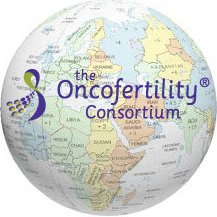 Oncofertility is a multidisciplinary field of experts coming together to provide fertility options to cancer patients. The multidisciplinary nature of the field was on display during our 7th annual Oncofertility Conference in Chicago, Illinois. During the course of the conference, we saw presentations from international scientists, Northwestern program leaders, social workers, surgeons and reproductive endocrinologists (to name a few). In addition to the powerhouse lineup of speakers, conference attendees were able to interact amongst themselves to foster collaborations to begin, or strengthen, their individual fertility preservation programs. The audience was just as diverse with cancer survivors, high school students, patient advocates and navigators, lab scientists, physicians and community leaders coming together to share stories and gather data to better serve their patients at home. They also had the opportunity to attend our largest poster session to date with 50 scientific posters from around the world demonstrating current advances in oncofertility.
Oncofertility is a multidisciplinary field of experts coming together to provide fertility options to cancer patients. The multidisciplinary nature of the field was on display during our 7th annual Oncofertility Conference in Chicago, Illinois. During the course of the conference, we saw presentations from international scientists, Northwestern program leaders, social workers, surgeons and reproductive endocrinologists (to name a few). In addition to the powerhouse lineup of speakers, conference attendees were able to interact amongst themselves to foster collaborations to begin, or strengthen, their individual fertility preservation programs. The audience was just as diverse with cancer survivors, high school students, patient advocates and navigators, lab scientists, physicians and community leaders coming together to share stories and gather data to better serve their patients at home. They also had the opportunity to attend our largest poster session to date with 50 scientific posters from around the world demonstrating current advances in oncofertility.
As the new research project coordinator for the National Physicians Cooperative (NPC) of the Oncofertility Consortium, I considered the conference my initiation into the oncofertility community. During my first few weeks at Northwestern, while being oriented to a new field at a new institution, I spent a large part of my day reviewing scientific papers, watching Virtual Grand Rounds, and thumbing through book chapters to try and grasp the intricacies of oncofertility. While that process gave me a fairly comprehensive understanding of the mechanisms behind fertility preservation issues in current cancer patients and survivors, the true importance of the work being done by the Oncofertility Consortium really hit home when I had a chance to speak with conference attendees.
I spoke with cancer survivors on what these fertility preservation measures mean to them and their future reproductive options. I chatted with patient advocates and nurses about the issues that patients discuss with them on a daily basis and then viewed presentations from respected leaders on methods and techniques to address those issues. I met national NPC leaders who discussed current protocols and clinical standards before brainstorming ways to improve the standards and create solutions for roadblocks.
While members of the Oncofertility Consortium, and the broader oncofertility community, come from different backgrounds and geographical locations, we are working towards a shared goal of expanding fertility options for cancer patients and survivors. I look forward to establishing my role in the National Physicians Cooperative of the Oncofertility Consortium and collaborating with members across the country.
I invite you to view the 7th annual Oncofertility Conference here: 2013 Oncofertility Conference


 By: Brigid Martz Smith -
By: Brigid Martz Smith -